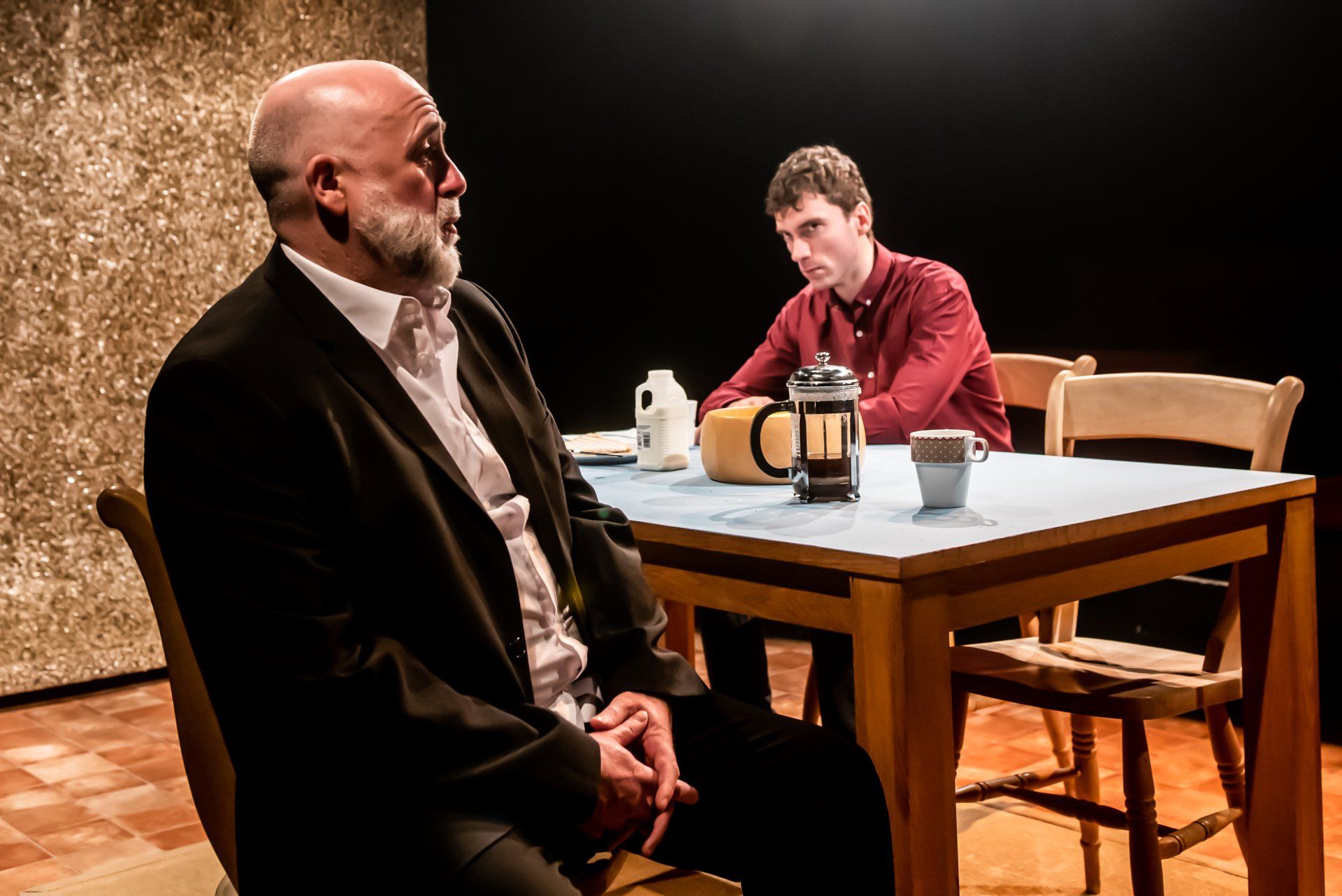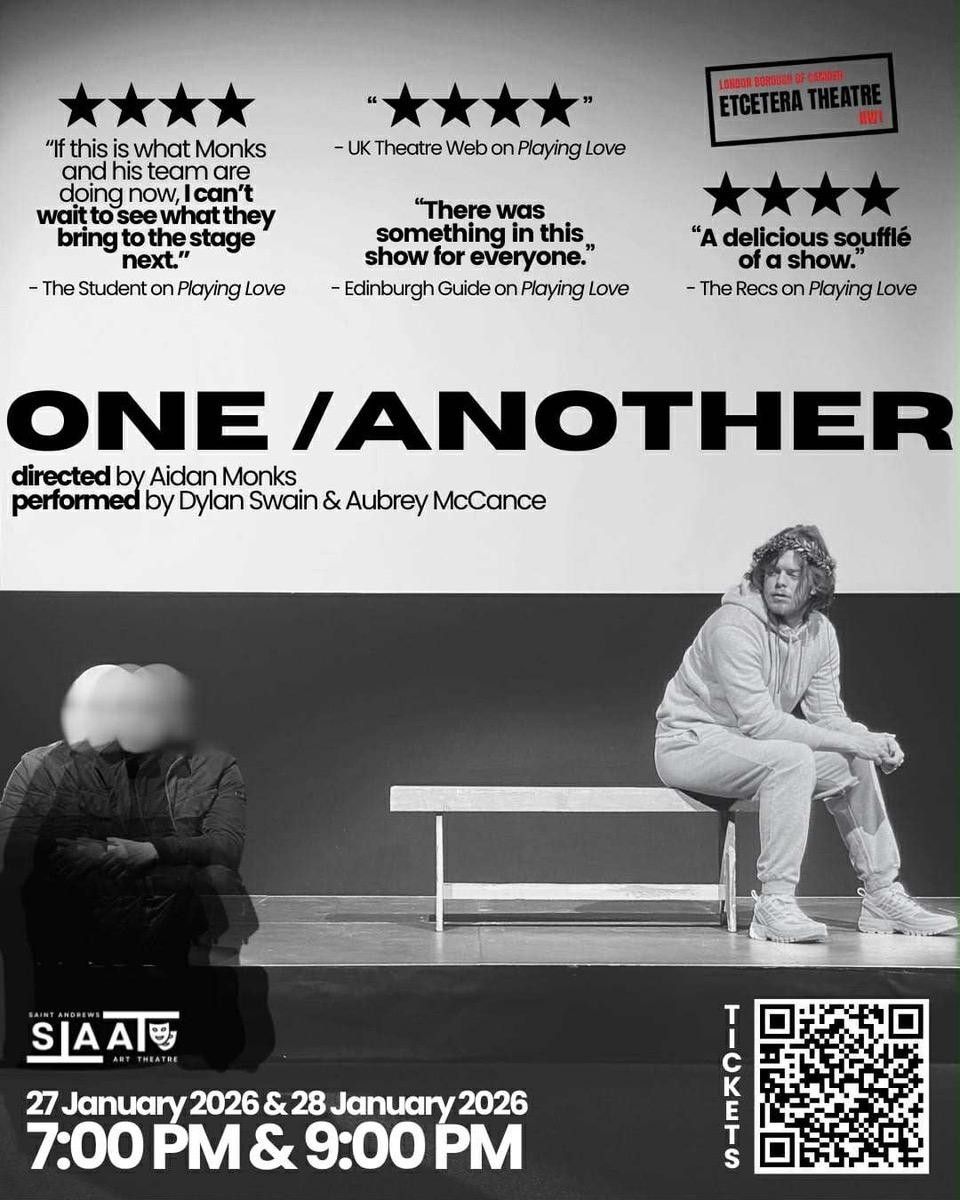REVIEW: NOT NOW by David Ireland at Finborough Theatre until 26 Nov 2022

‘Powerful performances in a play exploring masculinity and cultural identity.’ ★★★★
In a Belfast kitchen, Matthew (Matthew Blaney), a young aspiring actor, practises his audition: the opening speech from Richard III. He is interrupted by his uncle Ray (Stephen Kennedy), staying the night after his brother’s, and Matthew’s father’s, funeral. The interruption develops into an intense debate between the two men, covering masculinity, communication, Irish identity and Britishness.
Firstly, I thought it wonderful to see two actors from Northern Ireland perform a play about Northern Ireland in London. As the character of Ray comments in the play, often the Northern Irish story is ignored or forgotten in the rest of the UK, despite the fierce patriotism felt by many people in Northern Ireland. This patriotism is shared by Matthew: the play opens with his rehearsal of the speech in something like a hammy Laurence Olivier impression, his attempt to identify with symbols of British success. One of the topics of their debate is why he isn’t speaking it in his own accent. This turned into a brilliant motif associating identity and self-awareness with the nature of a performance, with Matthew doubting that he would be taken seriously as a Northern Irish actor on the English stage.
Britishness is questioned throughout: Matthew is proud of what he sees as his British heritage, and celebrates Shakespeare as the best writer; Ray doesn’t really care if they’re Irish or not, and declares that Stephen King is the greatest writer ever. The question eventually turns to Matthew’s father, whose cause of death remains an ambiguity, and his role in The Troubles.
It also seemed to me to be about how men communicate. Whilst Ray interrogates Matthew’s sense of his own identity, suggesting that members of their family have speculated that Matthew is gay due choosing a career in acting, Matthew casts doubt on Ray’s boasting about his succession of girlfriends. Although it felt like Ray’s secret is revealed very quickly, the two men’s insecurities point towards standards by which men are often held: their sexuality, or sexual conquests, and their pride.
Further to this, it was interesting to see an uncle-nephew relationship explored on stage. It offered an interesting dynamic, where the younger Matthew is forced to look to an older relative for guidance after the loss of his father, and the older Ray must be the one to reveal the family secret.
These are huge themes to pack into a play that is only about 50 minutes long, and the reveals, the depths of the men’s debate, perhaps felt a tad rushed. There is more room for this play to breathe. For a while it felt a little static; the actors could have used the space on the stage more, rather than looking at each other from across the kitchen table. Still, these are minor gripes given the nature of the themes discussed, and the emotive, powerful performances, especially from Stephen Kennedy.
The issues explored in Not Now feet ageless yet prescient: the conflict between British and Irish identity, how men communicate with each other and express themselves. The play’s title suggests that a resolution to these are some way off, but the ending does leave us with a sense of optimism for the future.
Photography credit: Lidia-Crisafull
The English premiere of
NOT NOW by David Ireland
Finborough Theatre
1 - 26 November 2022
https://finboroughtheatre.co.uk/production/not-now/
Directed by Max Elton. Designed by Ceci Calf. Lighting by Mattis Larsen. Sound Design and Composition by Jack Baxter.
Presented by 19th Street Productions in association with the Finborough Theatre
Reviewed by Jonny Kemp







